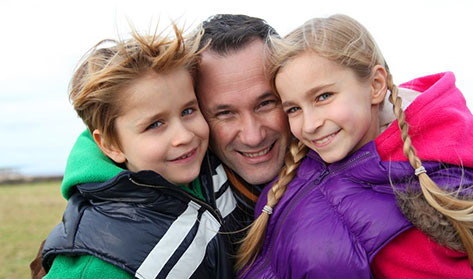If you learn that a child in your extended family has been abused or neglected by his or her parents, you may have a long road ahead of you. Your first concern will be for the current safety and security of the child. Your next concern will be to ensure that the child will be cared for properly in the future.
Most people have no idea where to begin when it comes to protected and gaining custody of a relative. It’s a situation no one wants to experience, but sometimes it is necessary to provide a safe home for children. Here’s what you need to know about responding to poor parenting situations and what you can do to gain custody of a child who is in your extended family.
Defining Neglect and Abuse
Many parenting methods are perfectly safe and valid, and the state cannot interfere based on matters of opinion. If you simply disagree with how your relatives raise their children and there is no evidence of harm, your reports will not get very far.
Washington sees abuse, abandonment, or neglect of a child as a criminal offense. Violators can be subject to prison time and heavy fines. Generally, these actions constitute abuse or neglect under the law:
- Sexual exploitation. This includes but is not limited to acting upon a child, taking inappropriate photographs, or making a child witness inappropriate or violent sexual actions.
- Using too much force to discipline or stop a child. Physical harm would be evidence of this type of treatment.
- Leaving a child unattended in a parked car. This provision is in place to prevent accidental death due to brake failure or heat stroke.
- Giving a minor drugs or alcohol.
- Driving a vehicle while impaired with children present. Generally, this is action is charged under “child endangerment.”
- Knowingly leaving children in the care of a sexual offender.
- Failing to provide the necessities of life, including food, water, clothing, and shelter.
- Leaving young children unattended for long periods of time, especially when they don’t have access to basic necessities.
Any combination of the above actions may result in the termination of parental rights. This is when family members can step in to offer homes for children in these situations.
Knowing the Signs
Sometimes, it is difficult to see the signs of neglect, abandonment, or abuse. Many children do not say anything about what they experience at home, and it can be challenging to know for certain if you are right about your suspicions.
Family members usually see children more often or have an insider’s view into living conditions and family dynamics. They may have more ability than “mandatory reporters” like doctors, teachers, and counselors to see what is going on at home.
Warning signs of abuse, neglect, or abandonment include:
- Lack of medical attention. For example, if you notice that your niece or nephew has a large cut that should have been seen by a doctor for stitches, but was not, this is a warning sign.
- Reduced enthusiasm for normal childhood activities.
- Weight loss, reduced personal hygiene, or a ragged appearance.
- Poor school performance.
- Increased anxiety, agitation, or fear over getting into trouble for ordinary childhood mistakes.
- Apathy toward adults and reduced affection toward those who show love and concern.
If you see these warning signs, your first step should be to contact child protective services. Following that phone call, it’s best to also contact a family law attorney as soon as you can. You will need legal assistance in cases where clear-cut evidence is difficult to pinpoint.
Gaining Custody
After you have contacted CPS, there will be an investigation into the claims of abuse. The police will direct the investigation on criminal activity. CPS begins evaluating the family and looking for possible temporary care situations. When the case of abuse is clear, parental rights are often terminated based on the seriousness of the circumstances.
Terminating rights can be a lengthy process, and so first you must be appointed as a guardian. Then you can work toward making the situation permanent, especially if there is little chance the parents will improve. Fortunately, Washington gives legal preference to worthy relatives to adopt children before looking to the public for foster care or adoptive parents.
If you are fighting for custody of these children, your lawyer can help compile the history of abuse and unfit parenting evidence. Your lawyer will also help you complete the necessary steps to make yourself available and suitable for adoption. You will need to prove that your home is safe and ready for children and that you can support the added expense.
You will be given even more preferential status in court if you can show a history of a relationship with the child in question. You will be required under Washington law to undergo a criminal record check before the placement, even though you are a family member.
For more information on adopting a relative out of a bad home situation, contact us at Madison Law Firm PLLC. We can provide the information you need to get started on this big step.








